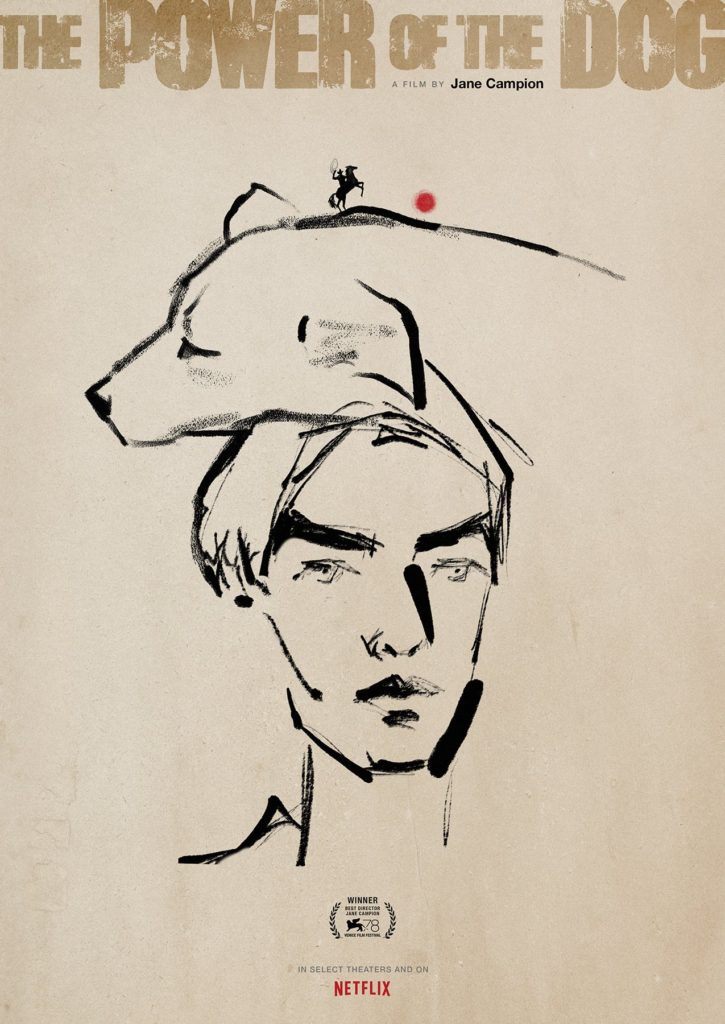
November takes us into the heart of awards-season film releases. In other words, there are A TON of great movies released in November and December, all vying for awards and critical prestige. As a result, there are some fantastic scores coming out, like Oscar favorite The Power of the Dog by Jonny Greenwood! As always, if you think I’ve missed any scores from this month (or any past months), leave a comment or get in touch and I’ll check them out!
As has been the trend for this year, there have simply been too many excellent scores for me to do even these brief writeups on (not to mention the difficulty it trying to keep track of them all!). The upside, of course, is there’s a ton of great music! Make sure to scroll to the end of this article for a list of even more November scores to check out!
Have a quick read about each of these excellent scores below then be sure to give them a listen. Be sure to see what other scores you may have missed by reading past editions of this column or listen to me talk about some of these releases:
Passing – Devonté Hynes
Devonté Hynes has quietly built a reputation for indie, unorthodox compositions in his film scoring, fully embracing the weird side of electronics. Passing shows a different side. The very first notes are from a trumpet drenched in melancholy, and the score’s stripped down, sorrowful jazz becomes increasingly draining. Its brief, twenty-one-minute length still leaves you sapped. Passing may be Hynes at his most conventional, but it’s also arguably his most emotionally resonant score.
The Power of the Dog – Jonny Greenwood
Alongside Hans Zimmer’s Dune, Jonny Greenwood’s The Power of the Dog is this year’s Oscar frontrunner. Greenwood’s score plays with expectations of a more-typical western’s music, maintaining a familiar palette but adding in unorthodoxy and subversion. There’s a sense of nostalgia here, a longing for a west that (even by the film’s early 20th century setting) is already long gone, or maybe existed only in myth and memory. It leans heavily into subtext, hinting (or outright telling) at what’s happening just beneath the film’s surface. Given the number of viewers confused or surprised by the film’s ending, it would be very interest to revisit this score in context; Greenwood gives the puzzle pieces to the viewer, they just have to figure out how those pieces fit together.
Spencer – Jonny Greenwood (Review)
Despite the prior score’s media, critical, and awards attention, my favorite Greenwood score of the year is Spencer. Here, Greenwood gets right into the head of Princess Diana and her conflicts with royalty, tradition, and expectation by pitting free form jazz and more conventional orchestral scoring against one another. The two disparate genres wage a war against one another. Most cleverly is how naturally this plays out. Rather than having cues of one genre or the other, both seamlessly flow within cues creating a much organic representation of what goes on in the mind. As this mental doomsday looms, an undercurrent of the horrific and a funeral dirge arrive, setting the listener on constant edge.
Coppelia – Maurizio Malagnini
One of the year’s great surprises was Maurizio Malagnini’s Coppelia. The film is a combination live action/animation retelling of the 19th century ballet, in which an interloping surgeon attempts to steal a boy’s heart to bring his robot-woman-creation to life. Malagnini’s score is largely sweeping, elegant, and melodically orchestral; the very style that seems to fall so out of favor. But mixed within are significant electronic elements that reflect the film’s sci-fi leanings. It’s a difficult score to digest at first, not just because it runs at 80+ minutes but also because it’s so complex, telling a cogent, coherent, vivid story solely through music.
The Electrical Life of Louis Wain – Arthur Sharpe
Every so often you need a score to lift your spirits and make you forget about life’s great negativity. Last month we had Alexandre Desplat’s The French Dispatch. November brings us Arthur Sharpe’s The Electrical Life of Louis Wain. Sharpe delivers a lovely score heavily laden with theremin, which adds a whimsical, surreal aura even in the darkest moments. It’s wonderfully balanced, so jubilant and cheerful that it feels like it comes from another, more hopeful reality but without ever being so twee or saccharine that it’s unpalatable. The Electrical Life of Louis Wain, alongside shows Flowers and Landscapers, seems certain to propel Sharp’s career.
A Few More Scores
- Eternals – Ramin Djawadi
- Finch – Gustavo Santaolalla
- The Most Reluctant Convert – Craig Armstrong
- Napoleon – In the Name of Art – Remo Anzovino
- C’mon C’mon – Aaron Dessner and Bryce Dessner (Interview)
- Darkness of Otherwhere – Si Begg
- Double Walker – Mark Hadley
- The Gravedigger’s Wife – Andre Matthias
- Guidance – Navid Hejazi
- 8-Bit Christmas – Joseph Trapanese
- Ghostbusters: Afterlife – Rob Simonsen
- Julia – Rachel Portman
- Resident Evil: Welcome to Raccoon City – Mark Korven (Interview)
- Traces of Madness – Riccardo Marchese
- The Summit of the Gods – Amine Bouhafa
- All Light, Everywhere – Dan Deacon
